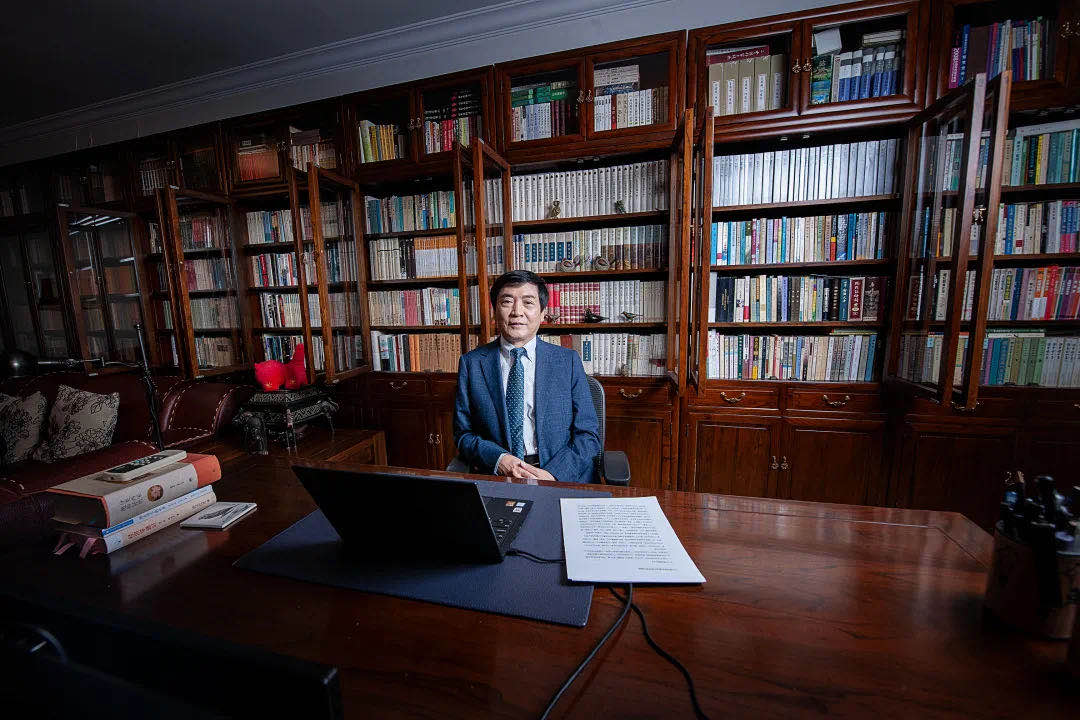Peking University, November 20, 2020: Hidden among the beautiful and traditional architecture of Peking University lies humble-looking corners filled with precious and pleasant riches of knowledge, enveloped with row after row of neatly lined up books towering towards the tall ceiling.
These mysterious hidden corners of Peking University are in fact the study rooms of generations and generations of Peking University scholars and professors. Here, we invite you to explore with us various study rooms on PKU campus through the lenses of five prominent PKU scholars Wang Shicheng, Cao Wenxuan, Han Maoli, Zhu Qingsheng and Zhang Fan. Embark on this journey with us and you'll be given insights into some of the most brilliant minds of PKU as you hear them share stories of their study rooms- the place where all the magic happens.

Cao Wenxuan
Department of Chinese Language and Literature, Peking University
Cao Wenxuan is a Chinese writer and professor at the Department of Chinese Language and Literature, Peking University. He is a member of the China Writers Association, Children's Literature Association, a Hans Christian Andersen Award winner, and the author of literary works such as "The Grass House", "Bronze and Sunflower".
We were greeted by a sea of books when we first entered the room.
The wooden bookshelves, covering the expanse of the room like that of a hazel-colored ocean, carried varying books in their hold. The two walls of the room were re-designed to become uniform bookshelves that towered over us and almost touched the ceiling. The study room led us to the balcony, where we spotted a short bookshelf hiding among the morning rays. "This is only a part of my collection," Professor Cao commented. He stretched out his hand and gestured somewhere, "There are more books elsewhere."

Professor Cao partly attributes his passionate hobby of reading and book collection to childhood experiences of "scarcity". "That was an era when books were very scarce," he recalled, eyes dancing with emotion. "Fortunately, I was the son of an elementary school principal. Sang Qiao in 'The Grass House', he was based on my father. There were some books in that elementary school, and my father also had two cupboards full of books. So in that sense, I was luckier than the other children in the village. I had more materials to read." The love of reading, cultivated from young, followed Professor Cao his whole life. "If I don't read for some time, I will just feel uncomfortable."
When we inspected the books on the shelves closely, we realized that not only were there various literary works, but also books belonging to the categories of nature, society, humanities... basically, everything. "I am a writer focused on literary works, but I like to read everything," Professor Cao said. "I've always felt that you have to go for breadth while reading. When you write or learn about anything, the knowledge you have to acquire first is huge. To understand literature, you cannot just study literature. You have to learn and understand philosophy, psychology, history, and even cultural studies and anthropology." He puts it frankly, "If you only read books about your major and yet want to do a good job in your major... It's almost impossible."

"Read more." This is what Professor Cao emphasizes the most to his students. Before the interview ended, Professor Cao remembered something that happened in the past. Many years ago, he received a letter from a graduated student telling the frustrations and difficulties the student was facing in life.
Professor Cao comforted him this way, "No matter when, and where you are, as long as you don't throw away the book, nothing will be lost."
This is Professor Cao Wenxuan's message to the younger generation, and his take on the meaning of reading.
Written by: Estella Zhang Qiming
Edited by: Amanda Hu
Photo credit to: Lv Chen